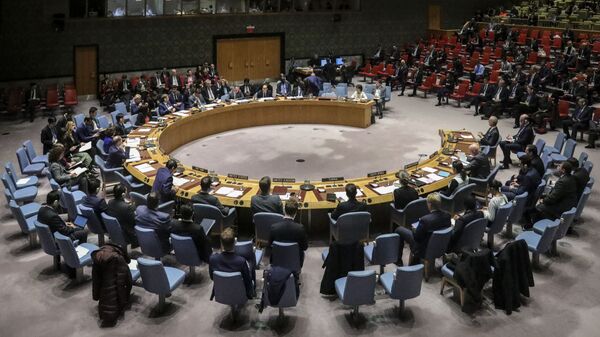"The resolution received four votes in favor, seven against and four abstentions", the source said on Wednesday.
The only members to vote in favor of the resolution were China, Russia, Vietnam and South Africa. The United States, UK, Germany, France, Estonia, Belgium, and the Dominican Republican voted against the measure while Indonesia, Niger, Tunisia, and Saint Vincent and the Grenadines abstained.
For a draft to become adopted by the 15-member Security Council, it needs to obtain support from a minimum of nine members and no veto from any of the five permanent states - China, France, Russia, the United Kingdom and the United States.
According to the text of the Russian draft, obtained by Sputnik, the cross-border mechanism would have been sustained "until 10 January 2021, excluding the border crossing of Al-Ramtha, Al Yarubiyah and Bab Al-Salam".
The resolution also sought to request UN Secretary-General Antonio Guterres to regularly update the Security Council on the impact of unilateral sanctions on the humanitarian situation in the region.
The Permanent Mission of Germany to the United Nations, which presides over the Security Council this month, said later that it joined Belgium's vote against the Russian draft because it did not meet the basic humanitarian requirements in Idlib.
"The resolution presented by Russia the UN Security Council voted on today did not fulfill the basic requirements requested by UNOCHA [UN Office for the Coordination of Humanitarian Affairs] and NGOs on the ground in Syria", the statement said. "For this reason, the co-penholders voted against the proposed text".
Russia circulated the draft on Tuesday, following the decision along with China to veto a resolution prepared by Germany and Belgium. The document would have reauthorised the UN cross-border mechanism through two checkpoints in Turkey for another year before the current mandate expires on 10 July.
The UN resolution, adopted in 2014, has been extended annually. However, as the situation on the ground has changed in recent years, Russia has become increasingly concerned that the relief aid was politicised by favouring certain groups over the others.



